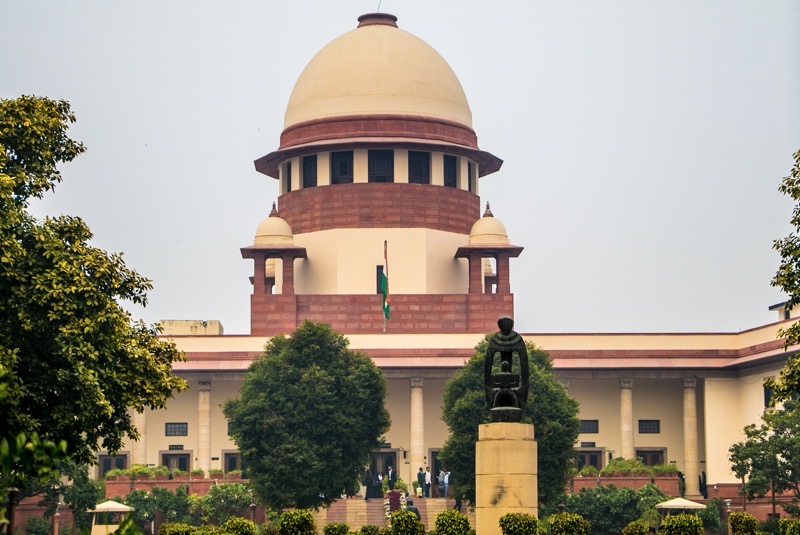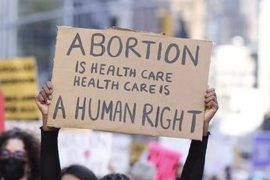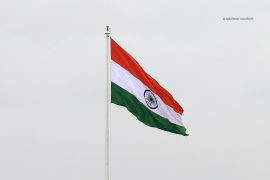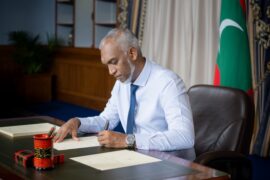Marie Antoinette is supposed to have said to the rampaging French mob, “If you don’t have bread, why don’t you eat cake?” Our pampered and entitled politicians could be telling us Indians: “If you don’t have roti, eat politics”.
Politics seems to be the main preoccupation of us Indians—from village teashops to affluent drawing rooms, from college campuses to seminar halls. Every other aspect of life is overshadowed by politics.
Why this obsession with politics? Perhaps it is a legacy of the long period of struggle for freedom when nothing else mattered except the goal of gaining independence. Politics was the vehicle to achieve that objective, and the best and the brightest were drawn to politics. Other pursuits could wait.
When power came with independence and political office became accessible to everyone, people took to the political process with exuberance. Many saw the opportunities provided by political office for doing good for the country and took up politics as a full-time occupation.
Not all of them had noble intentions, though. Many flocked to politics to dip into the honey pot of privileges and material gain. On the strength of the enormous power they wielded, the politicians, over time, extended their tentacles into every aspect of national life.
The first to feel the heat down their neck was the bureaucracy. The Constitution granted the bureaucracy a certain permanence and insulated it from the arbitrary pleasure of politicians. By cleverly using the carrot and the stick and playing on individual greed and hunger for power, the political executive turned the steel frame into a more malleable bamboo frame.
The first decisive nail in the coffin of an independent bureaucracy was Indira Gandhi’s insistence on a “committed bureaucracy”, changing the ground rule of commitment to the Constitution to commitment to the ruling dispensation. There was no looking back thereafter, and the downward slide has reached its nadir with the present government.
With blatant favouritism and malicious vindictiveness, the current political establishment has had considerable success in dismantling the vestiges of neutrality. The final nail in the coffin would be the latest directive to the senior bureaucrats to be the charioteers of the government’s publicity radhyatra prior to the general elections.
The army has been tasked with setting up 822 “selfie points” at prominent locations where citizens can click themselves with a cutout of Prime Minister Narendra Modi. The army has always been a forbidden ground for politics. However, the army was needlessly dragged into a political controversy when the then army chief made some comments of a political nature in connection with the protests over the amendments to the citizenship law.
The Agnipath scheme is playing with fire. It may bring votes to the ruling party, but imagine the 75 per cent of agniveers, who are not absorbed permanently, back in civil society, heavily trained in arms—a potential combat-trained militia waiting to be exploited for political or more sinister purposes.
The tussle between the executive and the judiciary has a long history. The regular runs-in between these two organs over judicial appointments are often viewed as nothing but the executive’s attempts to control the judiciary. However, instances of retired judges of the higher judiciary taking up the job of Governor and Member of Parliament and joining political parties on the one hand and active politicians joining the judiciary on the other hand, have cast a cloud over people’s confidence in the judiciary as the bulwark against executive excess and abuse of power.
Business and industry have always been the happy hunting ground of the politician. The era of scarcities and the “licence-permit raj” firmly established the enduring relationship of benefactor and supplicant between the politician and the industrialist/businessman.
The ruling politicians used every coercive arm of government to harass anyone who fell out of line. The task of filling the coffers of political parties is primarily assigned to industrialists and businessmen who make it a point not to antagonise any of them as insurance for the future.
Though the opaque electoral bond scheme of the present BJP government is severely criticised for its lack of transparency and the likely quid pro quo favouring the ruling party, it is unlikely that any political party will be willing to abolish the scheme if they come to power.
Crony capitalism will be alive and kicking. It had its shining moments when Anil Ambani, with no experience in aviation, beat Hindustan Aeronautics to be the offset partner in the Rafael deal, and Gautam Adani, popularly known as ‘Modi’s favourite tycoon,’ overtook Mukesh Ambani as the richest Indian on the Forbes list.
The Central Bureau of Investigation (CBI) has long been dubbed as a caged parrot of the government. The opposition parties cry hoarse against the routine use of the CBI, the Enforcement Directorate (ED), and Income Tax authorities to raid and harass opposition politicians, inconvenient media persons, civil rights activists and voluntary organisations.
Recently, the Supreme Court came down heavily on the repeated extensions granted to the ED Director Sanjay Kumar Mishra and called it “illegal”. His initial appointment was for a fixed tenure of two years, which was extended in November 2020 by a year in violation of the provisions of the Central Vigilance Commission Act. While a legal challenge against this extension was pending in the Supreme Court, the government gave him another extension on the strength of two ordinances, bringing his total tenure to four years.
While deciding the case in 2021, the Supreme Court held that he was not eligible for any further extensions. Immediately thereafter, the two ordinances were confirmed through an Act, and the government gave him another extension, bringing his tenure to five years. Understandably, the Supreme Court asked the Union government if there was simply no one else in the entire Enforcement Directorate who was competent. The episode is cited as a pointer to what extent the executive can go to have a favoured official in a crucial position.
Similar allegations have been raised about the government’s attempts to control other constitutional bodies like the Election Commission and the Comptroller and Auditor General of India to serve the interests of the government in power. Whether there is substance in some of these allegations or not, there is a growing disquiet among the public about possible political interference in the functioning of constitutional bodies. The recent changes made in the right-to-information regime have raised suspicions about the government’s attitude towards transparency and citizens’ right to hold the rulers accountable.
Though the opposition parties vociferously criticise individual instances of alleged political interference in the functioning of constitutional authorities, no one expects them to take up the independence of these bodies as a political issue and fight for it since the present arrangements suit all parties when they are in power.
Over time, politics has vitiated academia, too. Almost all major political parties have student organisations whose members are the party’s foot soldiers. Most teachers are unionised, and the academic authorities, like vice-chancellors, are often appointed on political considerations. The recent ugly spats between some state governments and the Governors over the appointment of vice-chancellors have brought the issue into sharp focus.
The rot has set in so deeply that the degrees and the PhDs granted by many of our universities are not valued highly by reputed foreign universities. Bright students are, therefore, increasingly opting to go abroad for higher studies if they can afford it.
Look at the sports bodies; many of them are awash with massive funds. Politicians have found their way to head most of them. Stadiums are being named after politicians instead of sports persons. The politician hogs the limelight—from inaugurations to jubilees and film festivals to academic and scientific seminars. The experts in the respective fields are often relegated to the background.
Partisan politics has reduced Parliament, the repository of people’s will, to an ugly charade. Sessions are being cut down regularly; important legislations are passed without debate, speeches drowned by shouts, allegations, and counter-allegations. The proceedings are disrupted frequently and often deadlocked.
The opposition parties allege they are denied adequate opportunity to vent their concerns. The opposition may get highly exercised over any issue, but the brute majority and the political interests of the ruling party would determine the priorities in parliamentary business.
Manipur burned for three months but didn’t get five minutes of Parliament’s time until a no-confidence motion was brought against the government over the issue. But the long-shelved women’s reservation bill was suddenly brought out from hibernation, and a special session of Parliament was summoned to pass it. But don’t get excited yet; you will have to wait for the next census and the subsequent delimitation of constituencies before you see women sitting in 33 per cent of seats in parliament and state legislatures. Meanwhile, you will be served with more politics, over vertical and horizontal reservation, who should get more credit, and so on.
Many able parliamentarians enrich the debates in Parliament. However, their speeches end up on the pages of the official records without being constructively engaged with or contributing materially to law-making. The Prime Minister rarely condescends to engage in discussions or answer questions directly in Parliament.
The party whip and the anti-defection law have virtually reduced legislators to mere numbers. The hegemony of political parties over their legislators has ensured that very little outside the official views of the parties has a chance to be heard in parliament and state assemblies.
The media’s credibility as a watchdog for citizens’ rights and a check on arbitrary power has been eroded. The media, particularly the electronic media, has virtually been captured by politicians in power and business houses that are usually beholden to the ruling party. There is widespread anguish over income tax and enforcement raids and questionable use of draconian laws like the UAPA aimed to stifle independent voices critical of the ruling party or the government.
When power politics has weakened most of the organs of the state, constitutional bodies, and regulatory institutions and stifled the media, where does the ordinary citizen turn for remedies? How does he free himself from the tyranny of politics?
The only real weapon in his hands is political – the vote. But it is a long shot. It requires constant vigilance, tenacity of purpose and a willingness to put the country’s larger interests over short-term personal or partisan gain.
It also needs a political class truly committed to democratic values and individual freedoms. It is for the citizen to use his weapon wisely, and in time, he might be able to put the politician in his place and create a new political environment, which enables the various other strands that enrich his life to flourish.
-30-
Copyright©Madras Courier, All Rights Reserved. You may share using our article tools. Please don't cut articles from madrascourier.com and redistribute by email, post to the web, mobile phone or social media.Please send in your feed back and comments to [email protected]











